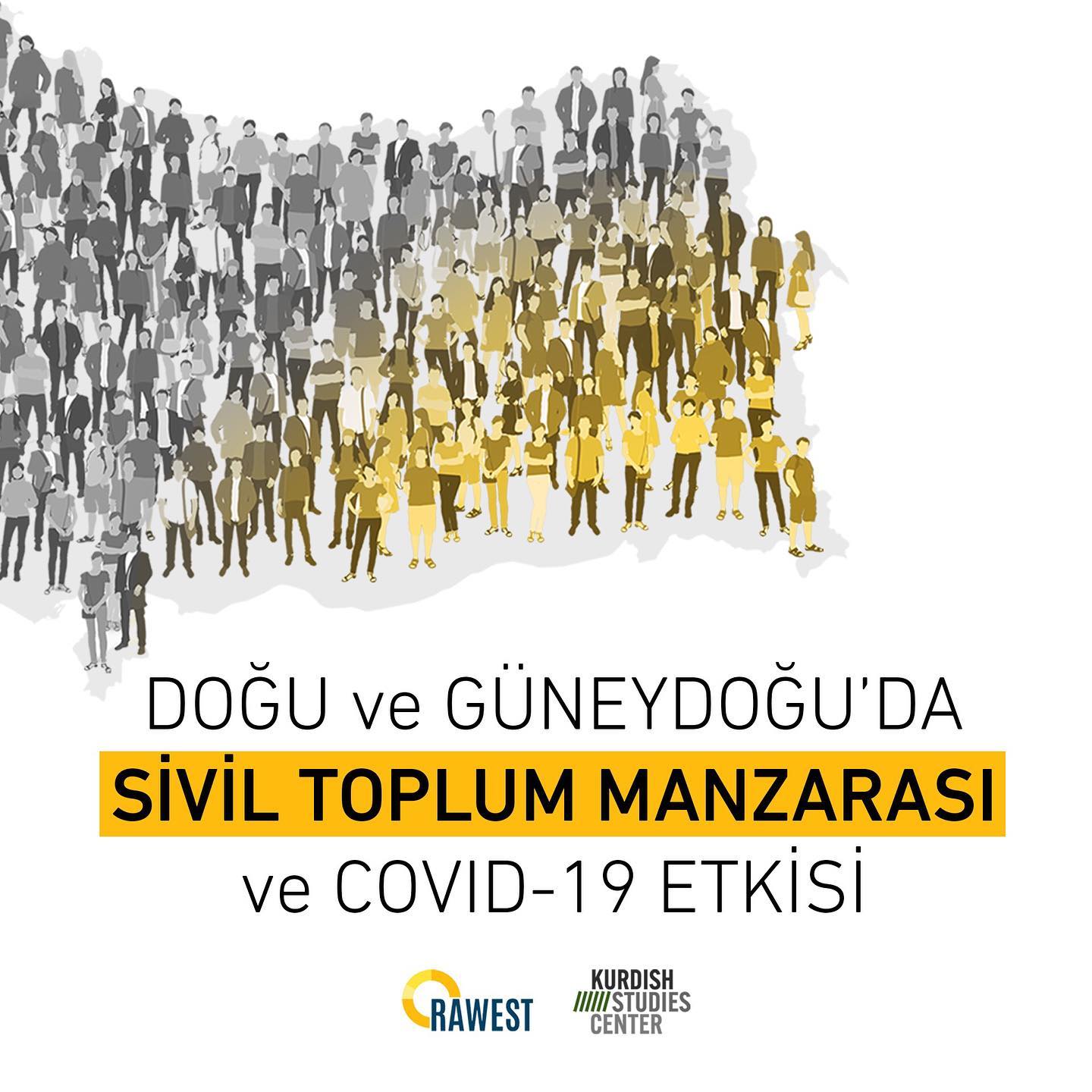The Landscape of Civil Society in the East and Southeast and the Impact of Covid-19

The report of the study titled “The Landscape of Civil Society in Eastern and Southeastern Türkiye and the Impact of Covid-19,” conducted by the Kurdish Studies Center in collaboration with Rawest Research, has been published.
The study focuses on the changing situation, challenges, and needs of Civil Society Organizations (CSOs) operating in Kurdish provinces, how they were affected by Covid-19, and the impact of the pandemic on decision-making mechanisms.
The research involved in-depth interviews with 40 representatives of CSOs in the Eastern and Southeastern Anatolia regions of Türkiye, as well as surveys conducted with 379 individuals holding various positions in the civil society sector.
It has been observed that civil society, which was weakened by the State of Emergency implemented after the end of the Peace Process in 2015 and the July 15 coup attempt, is now facing a new crisis due to Covid-19. Participants emphasize that civil society withdrew from public squares to closed venues during State of Emergency, and with Covid-19, it has been forced to move from these venues to online platforms. This shift poses a risk of civil society becoming “an environment for elites.”
While CSO representatives positively evaluate health-related efforts compared to global and European contexts, they criticize the way the process has been managed. They believe the government has ignored civil society’s recommendations and field experience, showing reluctance to cooperate with civil society.
Three out of five participants state that the visibility and activity of CSOs have decreased compared to five years ago. They attribute the primary cause and starting point of this decline to the post-July 15 crackdown on civil society, including closures via emergency decrees (KHK).
The pandemic has brought to the fore issues such as educational inequality, access to safe food, and sustainable spatial planning. Increasing activities in these areas and opening resources are expressed as expectations for the new period. Additionally, organizations struggling with sustainability emphasize the importance of institutional support in the civil sector during this time.
You can access the research report via the link below.
Download PDF Report
